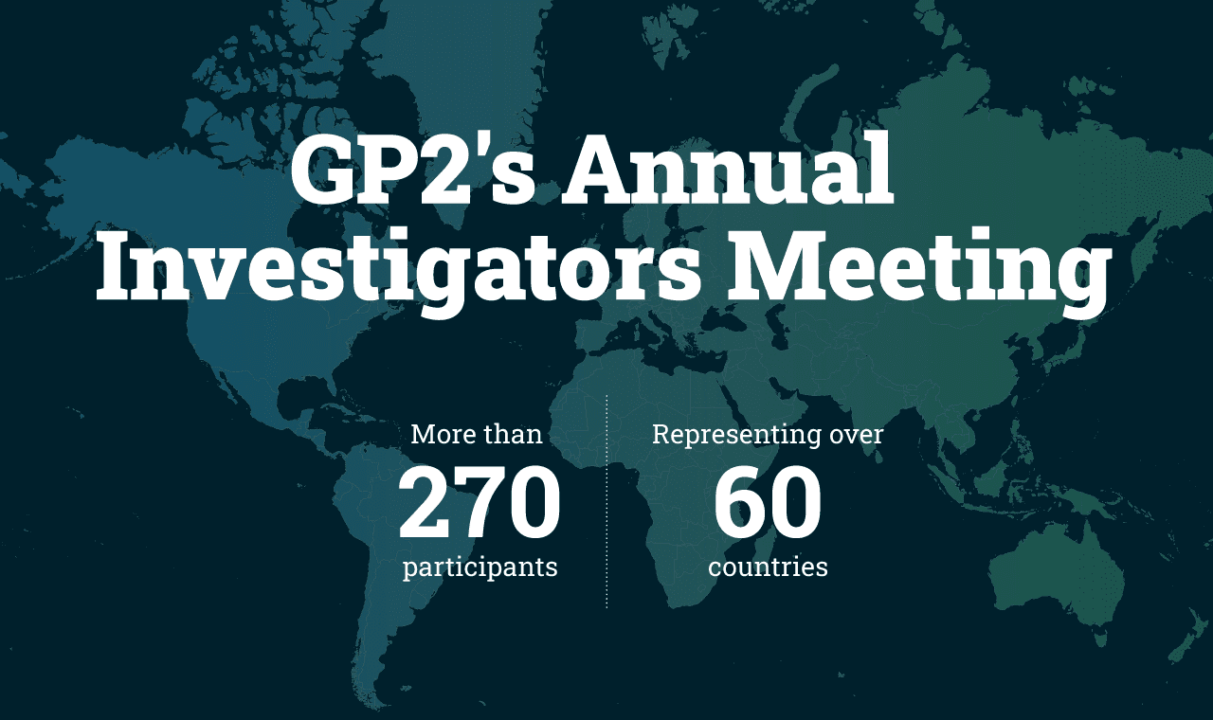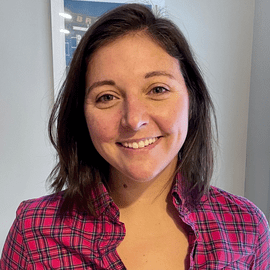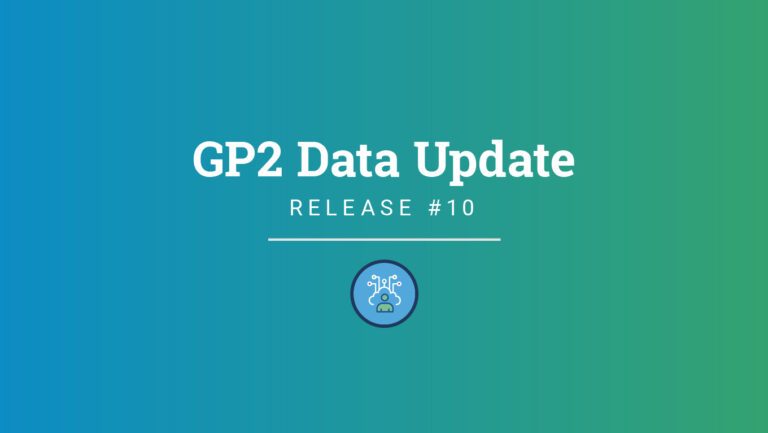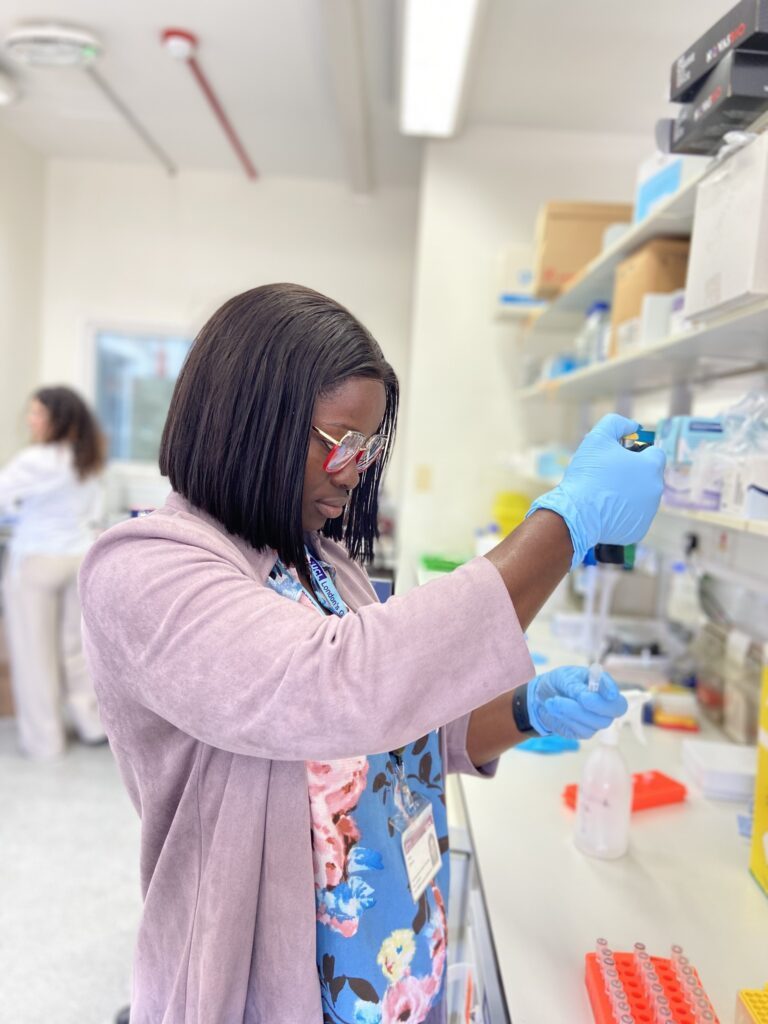“It was awesome.”
Rock concert? Space launch? Try GP2 Annual Meeting.
So described by GP2 Principal Investigator Andrew Singleton, PhD.
“I got a little emotional talking to the steering committee. We had more than 270 attendees from 60 countries. Some traveled more than 30 hours,” said Singleton, distinguished investigator at the U.S. National Institutes of Health (NIH). “This is a global collaborative community. The idea is not that we have select labs that do 90% of the work. Everyone has the opportunity to contribute.”
Travelers landed in Copenhagen, Denmark on August 23 for a two-day meeting of the minds. Here’s a brief recap of some topics covered and items for greater focus over the coming year.

GP2’s First Major Finding
The week of the meeting, GP2 researchers published in The Lancet Neurology that cross-cohort analysis had discovered a novel GBA1 gene variant in people of African descent. [Did you catch ASAP Director Ekemini Riley, PhD, on PBS Newshour?]
The energy at the GP2 Annual Meeting around the findings was palpable, with other groups energized to leverage their cohorts toward additional breakthroughs that will accelerate and inform precision medicine approaches. Additional analysis and data sharing continues toward more insights.
Return of Sequencing Results
As GP2 sequences data from more cohorts and more findings arise, the question of how to return value to participants becomes more prominent. At the meeting, GP2 presented a survey of members on expectations for the return of results and discussed the operational and regulatory challenges as well as ethical responsibilities surrounding returning genetic results to study participants around the world. A taskforce is moving forward to provide potential solutions for how this could be implemented in the future.
Leverage of GP2 Data for Additional Studies
A powerhouse of genetics research, GP2 data may have broader utility for studies exploring biomarkers or environmental influences. Based on feedback from meeting participants, study leadership is discussing the priorities and mechanics of leveraging GP2 data for additional queries.
Training, Training, Training
As always with GP2, training was a major focus of the meeting. Networking was in full swing between breaks. Trainees from various regions also presented on their research.
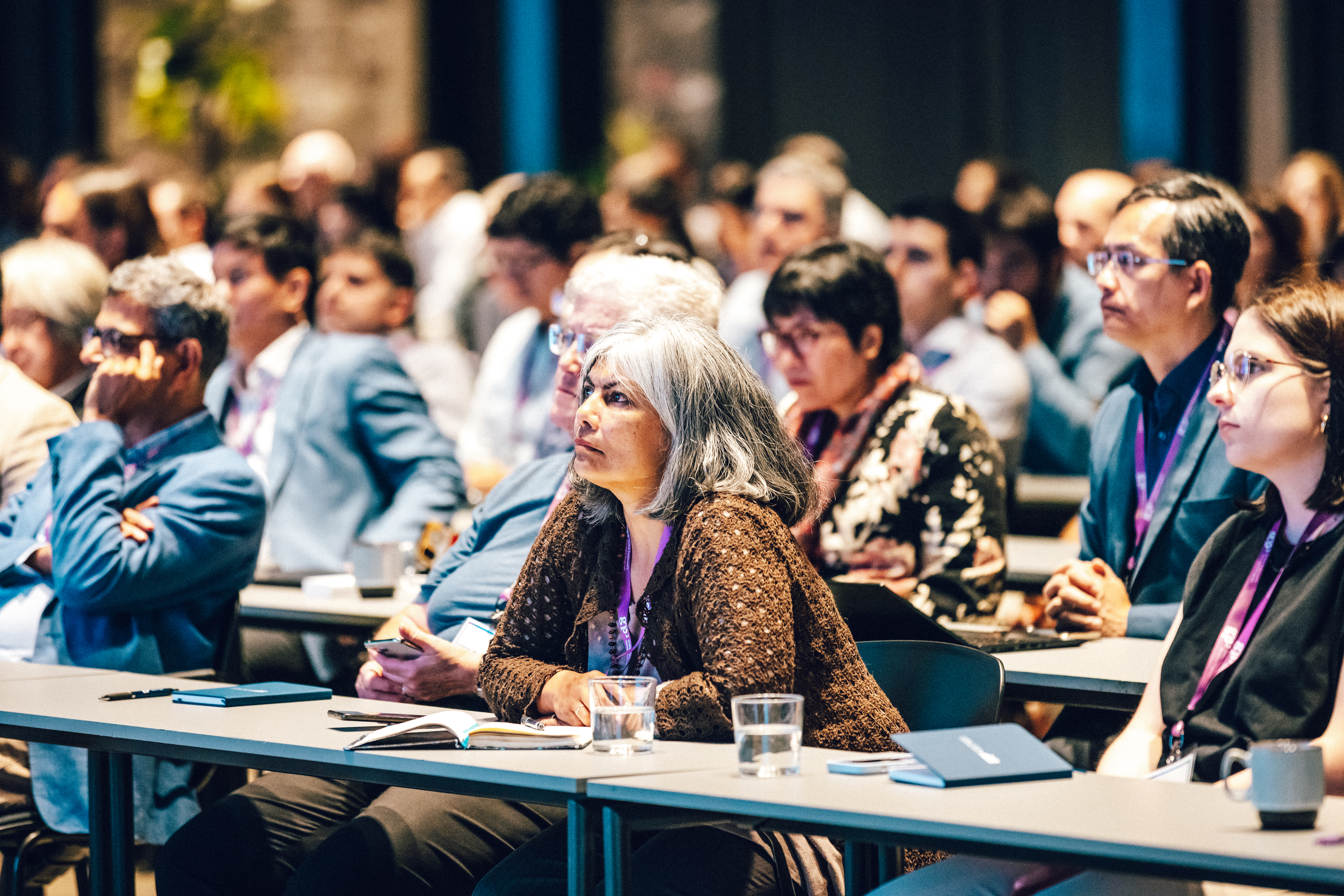 “The trainee talks were amazing — the diversity of science presented and the high quality of that science was phenomenal — very promising results and very promising students,” said GP2 co-principal investigator Cornelis Blauwendraat, PhD, of the NIH.
“The trainee talks were amazing — the diversity of science presented and the high quality of that science was phenomenal — very promising results and very promising students,” said GP2 co-principal investigator Cornelis Blauwendraat, PhD, of the NIH.
Arinola Sanyaolu, PhD, from the University of Lagos is the trainee representative from Africa and presented her research on polygenic risk score in participants of multiple ancestries. She has completed GP2 online training courses and hopes to pursue a master’s in data science through the GP2 program. (Learn more about this opportunity here.)
“The special thing GP2 brings is connectivity. People want to connect with you and want to help each other,” said Sanyaolu. “I feel that day by day, I am developing my career and moving closer to my dream.”
At GP2, we are incredibly excited about the active community coalescing around understanding the global architecture of Parkinson’s disease genetics. Join us by contacting [email protected].

